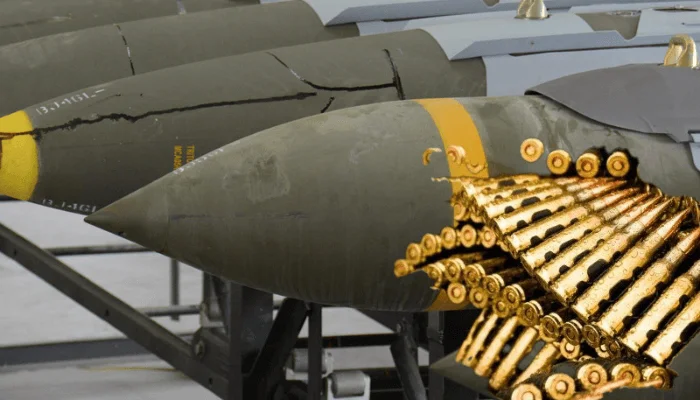The United States has given the green light for a potential $346 million sale of ammunition, precision bombs, and advanced rockets to Nigeria, marking another significant boost to the country’s defence capabilities.
The announcement came from the US Defense Security Cooperation Agency (DSCA) on Wednesday,August 13, 2025.
That confirmed that the US State Department had approved Nigeria’s request for a wide range of military munitions.
This package includes technical expertise and logistical support to enhance operational efficiency.
According to the DSCA, the move aims to strengthen Nigeria’s counter-terrorism strategies and bolster its efforts to curb illicit trafficking, both within the country and in the Gulf of Guinea—a region plagued by piracy, smuggling, and other maritime threats.
Details of the Proposed Sale
Nigeria’s request covers an extensive list of high-grade military hardware, including:
- 1,002 MK-82 general-purpose 500-pound bombs1,
- 002 MXU-650 Air Foil Groups (AFGs)
- 5,000 Advanced Precision Kill Weapon System II (APKWS) units with high-explosive warheads
- MK66-4 rocket motors and other advanced combat systems
This latest approval follows a 2022 deal in which the US authorised the sale of 12 attack helicopters, 2,000 advanced precision kill weapon system guidance sections, and night vision imaging systems to Nigeria—equipment valued at approximately $997 million.
Major Defence Contractors Involved
The DSCA identified Lockheed Martin, RTX Missiles and Defence, and BAE Systems as the key contractors for this deal.
- Lockheed Martin is a leading global defence and aerospace company, producing fighter jets like the F-35 Lightning II, transport aircraft such as the C-130 Hercules, and various missile defence systems.
- RTX Missiles and Defence (formerly Raytheon Technologies) is the world’s second-largest military contractor by revenue, specialising in aircraft engines, guided missiles, air defence systems, and cybersecurity solutions.
- BAE Systems, headquartered in London, is Europe’s largest defence company, manufacturing military aircraft, armoured vehicles, naval vessels, and cutting-edge defence electronics.
Strategic and Security Implications
In its statement, the DSCA noted:
“This proposed sale will support the foreign policy goals and national security objectives of the United States by improving the security of a strategic partner in Sub-Saharan Africa.”
The agency stressed that the transaction will enhance Nigeria’s capacity to respond to both current and emerging threats, particularly in combating terrorist organisations and addressing illegal trafficking activities.
Importantly, the DSCA emphasised that the sale would not disrupt the military balance in the region. It added that Nigeria’s armed forces would be able to integrate the new systems without difficulty, given their existing defence infrastructure.
The agency also clarified that the total cost of the transaction might be lower than the stated $346 million, depending on final requirements, available budget, and the specific agreements signed between the two nations.
Nigeria’s Defence Modernisation Drive
This deal is part of Nigeria’s broader push to modernise its military and strengthen its regional security presence. Over the past decade, the country has increased investment in advanced weaponry and surveillance technology, seeking to improve its response to insurgencies, maritime crime, and cross-border security challenges.
Defence analysts believe that this latest US arms package will provide the Nigerian military with greater precision strike capabilities and enhance its ability to conduct sustained counter-insurgency operations.
If fully implemented, the agreement could further cement the defence partnership between Abuja and Washington, signalling continued US commitment to supporting Nigeria as a key ally in Africa’s security landscape.
Deadly Tanker Explosion in Kaduna Kills Several, Injures Others




















